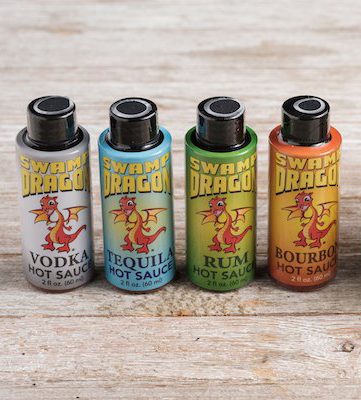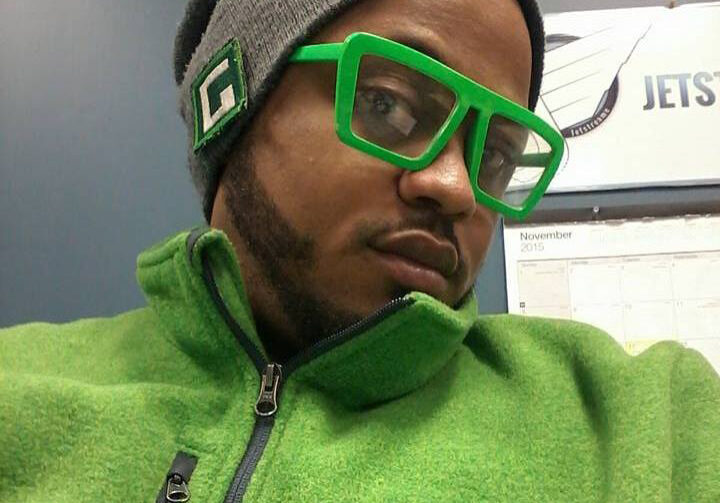Entrepreneur and spicy-food enthusiast Matt Beeson wondered why hot sauces all included vinegar when people often just wanted a dash of spice and flavor.
Beeson imagined replacing the acidic vinegar, which serves a preserving agent in nearly every hot sauce, with liquor, and he stumbled upon a new take on one of the world’s most popular condiments.
Today his Baton Rouge-based Swamp Dragon makes what it terms the world’s only truly liquor-based hot sauce. Some other hot sauces use liquor as a flavor infusion but still have a vinegar base; Swamp Dragon’s hot sauces have a base of bourbon, rum, vodka or tequila.
The company’s products have been a hit with spice enthusiasts, selling in stores across the country.
Creating a New Kind of Hot Sauce
For Beeson, whose background is in the high-end commercial audio and visual business, the journey from idea to food-service product was long and winding.
After months of searching in vain for an existing liquor-based hot sauce, he reached out to experts at LSU’s School of Nutrition and Food Science, and they confirmed such a product would be possible — and shelf-stable without refrigeration.
That was followed by a round of kitchen testing and iteration with his wife, a lawyer, where they worked through the heat-muting properties of liquors to find pepper-blend combinations that offered the right mix of flavor and spice.
Beeson’s instinct that vinegar was masking the pepper flavors in most hot sauces was eventually borne out by research. An LSU food science student found that the liquor-based sauce had five flavor points, while the same pepper blend combined with white vinegar only had one, Beeson says. “It’s objectively proven now to have a more complex flavor,” he says. “That’s because liquor tastes good and gets out of the way and white vinegar is very pungent and overpowering, both in flavor and smell.”
Once he had developed a viable product, Beeson spent six months in back-and-forth talks with state and federal alcohol regulators before they ruled the hot sauce was not an alcoholic beverage and could be sold in supermarket food aisles. “One taste of it and you’d have a hard time making the case it was beer, wine or liquor,” he says.
Beeson says that even though the sauce contains about 20% alcohol — making it shelf-stable for up to three years — the small amount in each serving doesn’t stick around when added to food. When Swamp Dragon is added to hot food, the alcohol evaporates almost immediately and carries with it all the aromas of the liquor. “It’s really kind of magical,” he says.
Scaling Up and Spreading Out
Swamp Dragon hit store shelves in a handful of Baton Rouge-area independent grocers last year, then in regional supermarket chain Rouses. These days the product is available in about 300 locations throughout the U.S., and the company is eyeing expansion. “They love us up in the Chicago area, in Michigan and the Gulf South,” Beeson says.
To meet demand, Swamp Dragon is working on a manufacturing site to allow for 24-hour production rather than the limited runs now possible through the LSU AgCenter’s Food Incubator. “Our output capacity is going to jump dramatically,” Beeson says.
Beeson is also garnering national media attention. He’s set to appear in an episode of the Vice show “Most Expensivest,” where hip-hop artist 2 Chainz explores the nation’s most expensive products and services. After the show approached Swamp Dragon about featuring a product, Beeson says he decided to create something well beyond his ordinary retail offerings. “I decided I better make the most expensive hot sauce in the world,” he says.
Beeson headed to New Orleans and bought a $600 bottle of 50-year-old cognac that he used for a batch of hot sauce that costs $250 a bottle. And he says he’s working on a second edition of Private Reserve Swamp Dragon, made from a $1,300 bottle of rum, that will sell for $500 a bottle.




